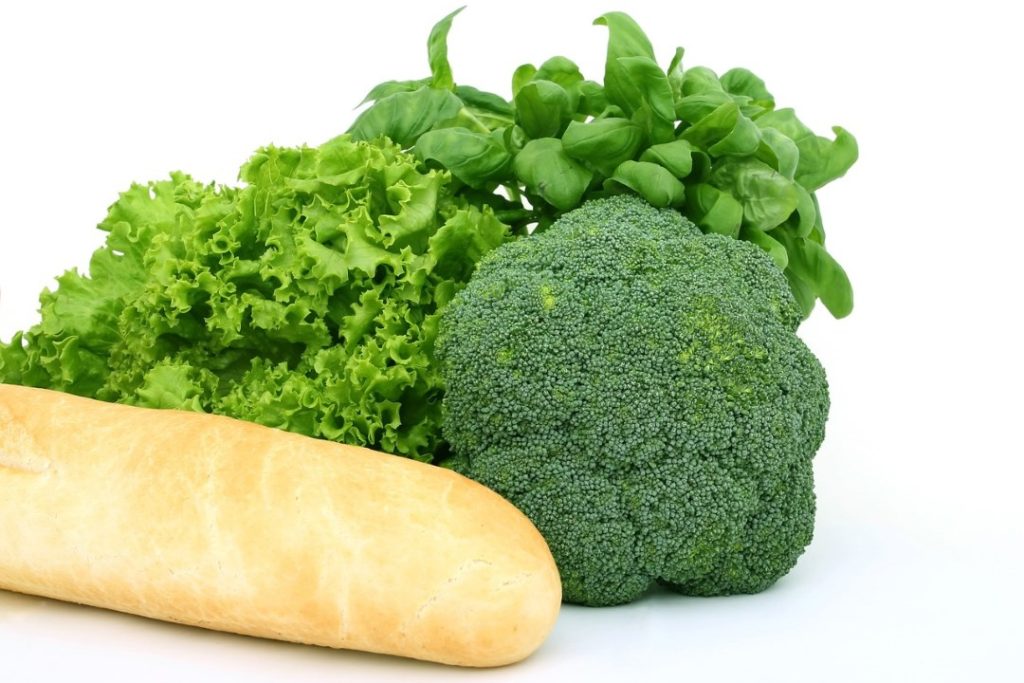
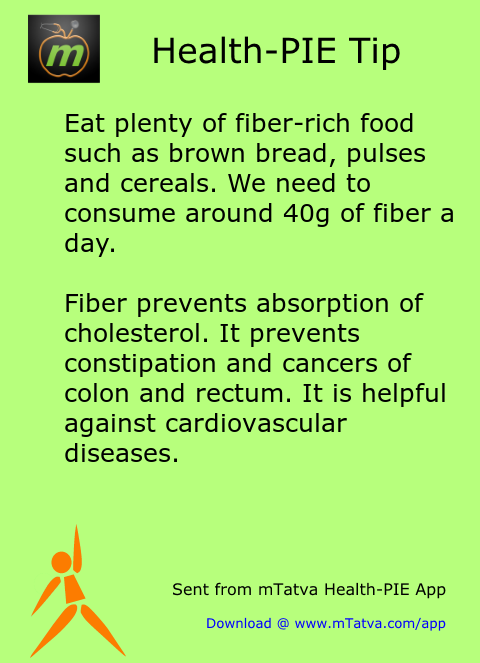
Eat plenty of fiber-rich food such as brown bread, pulses and cereals. We need to consume around 40g of fiber a day.Fiber prevents absorption of cholesterol. It prevents constipation and cancers of colon and rectum. It is helpful against cardiovascular diseases.
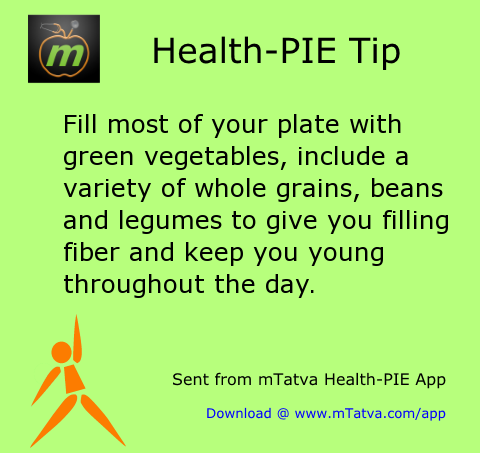
Fill most of your plate with green vegetables, include a variety of whole grains, beans and legumes to give you filling fiber and keep you young throughout the day.
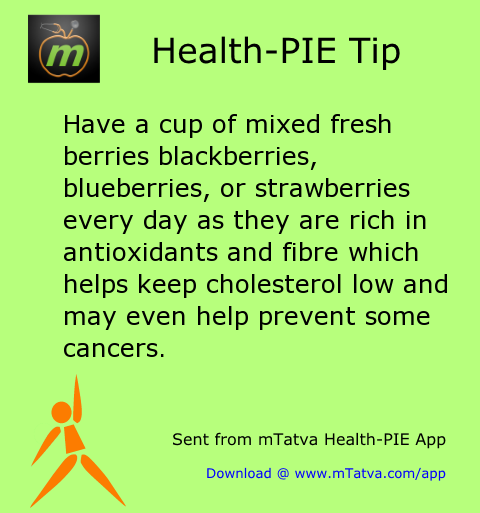
Have a cup of mixed fresh berries blackberries, blueberries, or strawberries every day as they are rich in antioxidants and fibre which helps keep cholesterol low and may even help prevent some cancers.
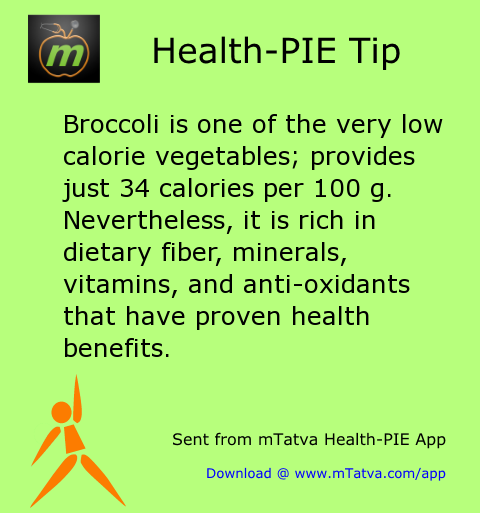
Broccoli is one of the very low calorie vegetables; provides just 34 calories per 100 g. Nevertheless, it is rich in dietary fiber, minerals, vitamins, and anti-oxidants that have proven health benefits.
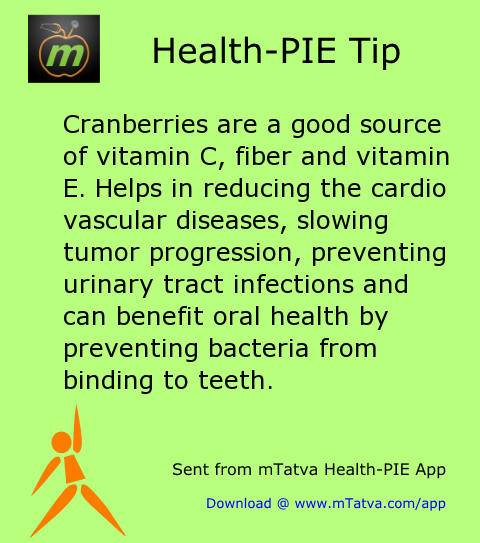
Cranberries are a good source of vitamin C, fiber and vitamin E. Helps in reducing the cardio vascular diseases, slowing tumor progression, preventing urinary tract infections and can benefit oral health by preventing bacteria from binding to teeth.
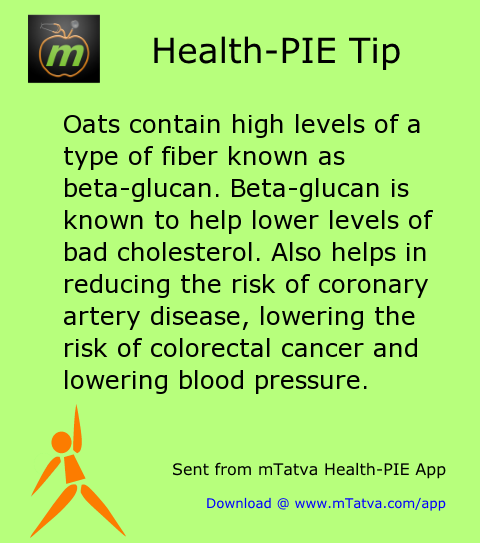
Oats contain high levels of a type of fiber known as beta-glucan. Beta-glucan is known to help lower levels of bad cholesterol. Also helps in reducing the risk of coronary artery disease, lowering the risk of colorectal cancer and lowering blood pressure.
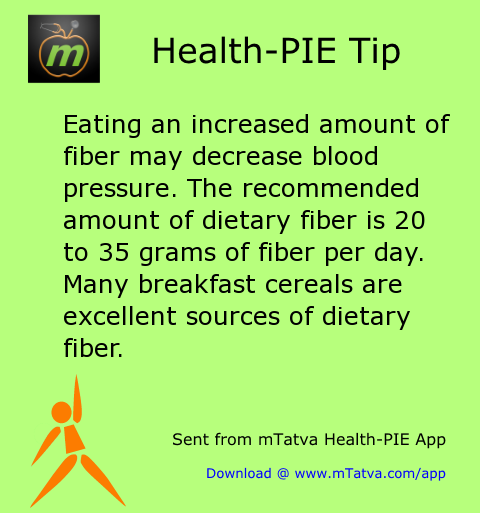
Eating an increased amount of fiber may decrease blood pressure. The recommended amount of dietary fiber is 20 to 35 grams of fiber per day. Many breakfast cereals are excellent sources of dietary fiber.
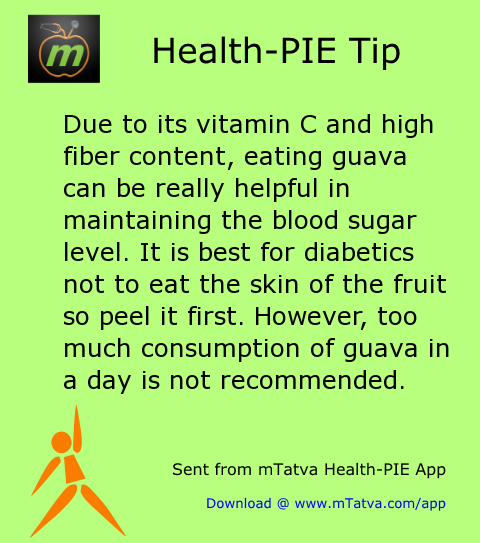
Due to its vitamin C and high fiber content, eating guava can be really helpful in maintaining the blood sugar level. It is best for diabetics not to eat the skin of the fruit so peel it first. However, too much consumption of guava in a day is not recommended.
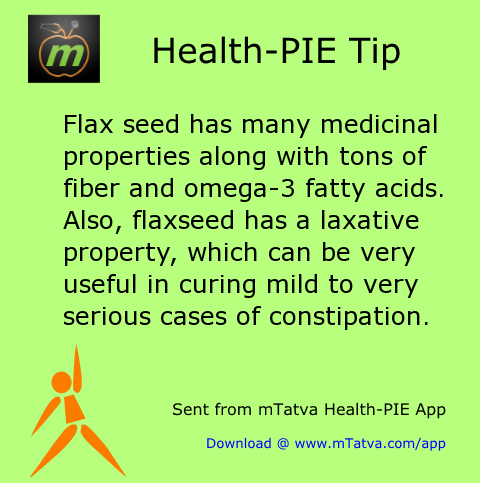
Flax seed has many medicinal properties along with tons of fiber and omega-3 fatty acids. Also, flaxseed has a laxative property, which can be very useful in curing mild to very serious cases of constipation.
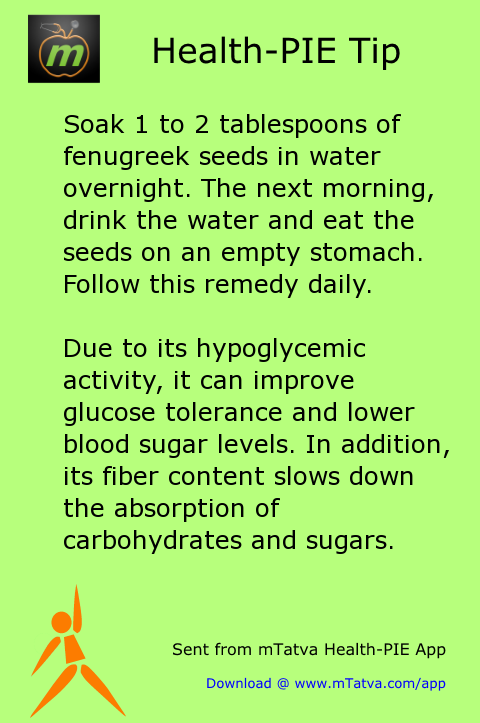
Soak 1 to 2 tablespoons of fenugreek seeds in water overnight. The next morning, drink the water and eat the seeds on an empty stomach. Follow this remedy daily. Due to its hypoglycemic activity, it can improve glucose tolerance and lower blood sugar levels. In addition, its fiber content slows down the absorption of carbohydrates and sugars.
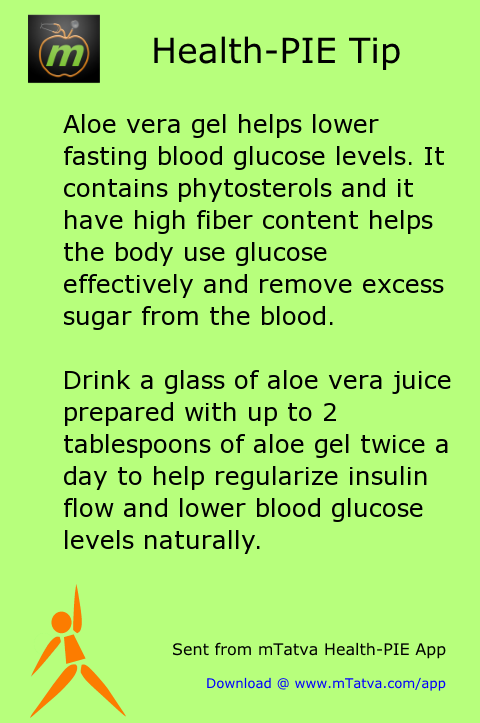
Aloe vera gel helps lower fasting blood glucose levels. It contains phytosterols and it have high fiber content helps the body use glucose effectively and remove excess sugar from the blood.Drink a glass of aloe vera juice prepared with up to 2 tablespoons of aloe gel twice a day to help regularize insulin flow and lower blood glucose levels naturally.
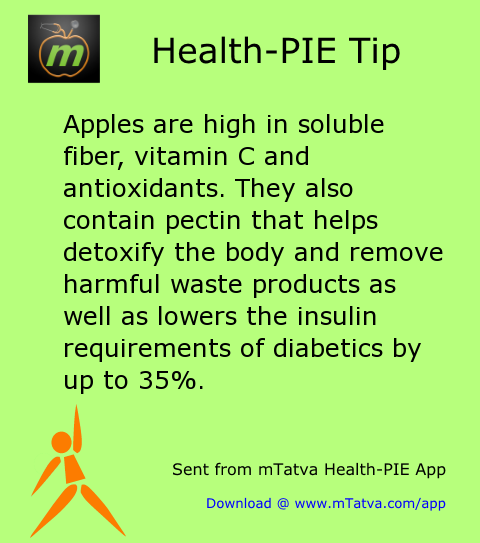
Apples are high in soluble fiber, vitamin C and antioxidants. They also contain pectin that helps detoxify the body and remove harmful waste products as well as lowers the insulin requirements of diabetics by up to 35%.
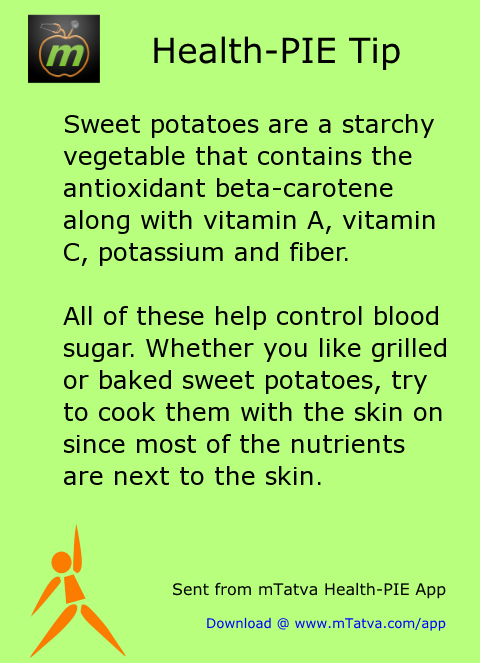
Sweet potatoes are a starchy vegetable that contains the antioxidant beta-carotene along with vitamin A, vitamin C, potassium and fiber.All of these help control blood sugar. Whether you like grilled or baked sweet potatoes, try to cook them with the skin on since most of the nutrients are next to the skin.
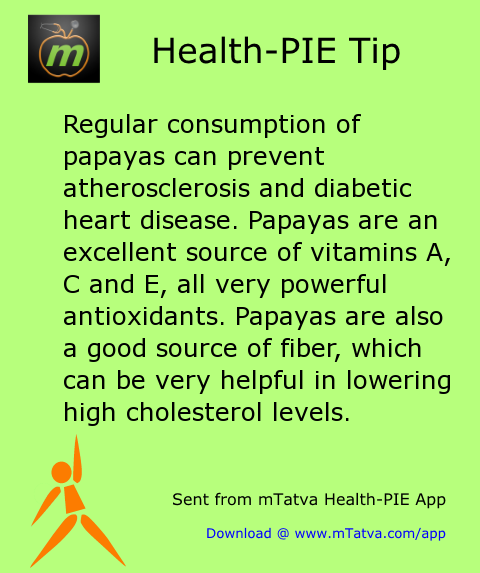
Regular consumption of papayas can prevent atherosclerosis and diabetic heart disease. Papayas are an excellent source of vitamins A, C and E, all very powerful antioxidants. Papayas are also a good source of fiber, which can be very helpful in lowering high cholesterol levels.

The high amount of the digestive enzyme called papain present in papayas helps break down tough protein fibers and aids the natural digestion process. The fruit have high water and soluble fiber content, making the digestion process easier. This in turn promotes proper functioning of bowel movements and helps prevent constipation.
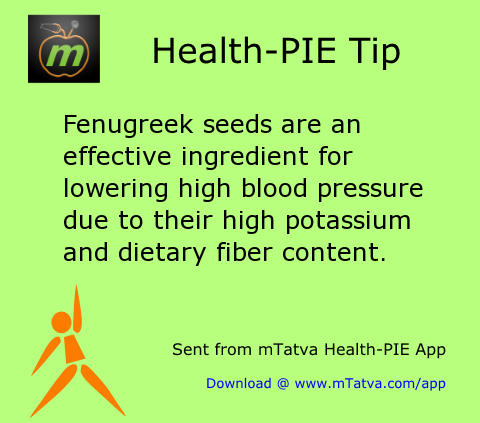
Fenugreek seeds are an effective ingredient for lowering high blood pressure due to their high potassium and dietary fiber content.
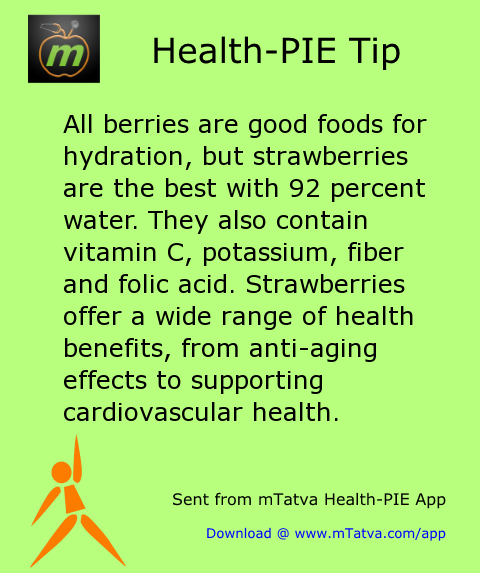
All berries are good foods for hydration, but strawberries are the best with 92 percent water. They also contain vitamin C, potassium, fiber and folic acid. Strawberries offer a wide range of health benefits, from anti-aging effects to supporting cardiovascular health.
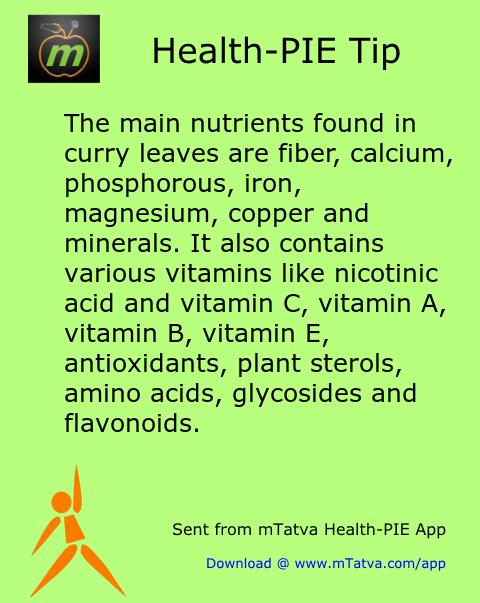
The main nutrients found in curry leaves are fiber, calcium, phosphorous, iron, magnesium, copper and minerals. It also contains various vitamins like nicotinic acid and vitamin C, vitamin A, vitamin B, vitamin E, antioxidants, plant sterols, amino acids, glycosides and flavonoids.

Broccoli is very low in calories but packed with fiber, vitamins, and minerals. It also contains powerful antioxidants that fight various cancers.
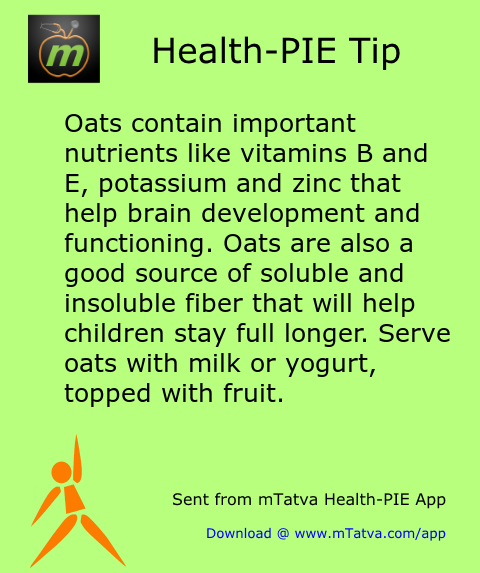
Oats contain important nutrients like vitamins B and E, potassium and zinc that help brain development and functioning. Oats are also a good source of soluble and insoluble fiber that will help children stay full longer. Serve oats with milk or yogurt, topped with fruit.

Avocados contain a good amount of minerals, protein, and vitamins C and E. They are also high in fiber, potassium and healthy fat. All these nutrients help regulate stress hormones by keeping your nerves and brain cells healthy. Eating one-half or whole avocado daily can significantly lower your blood pressure level and reduce your stress hormone level.
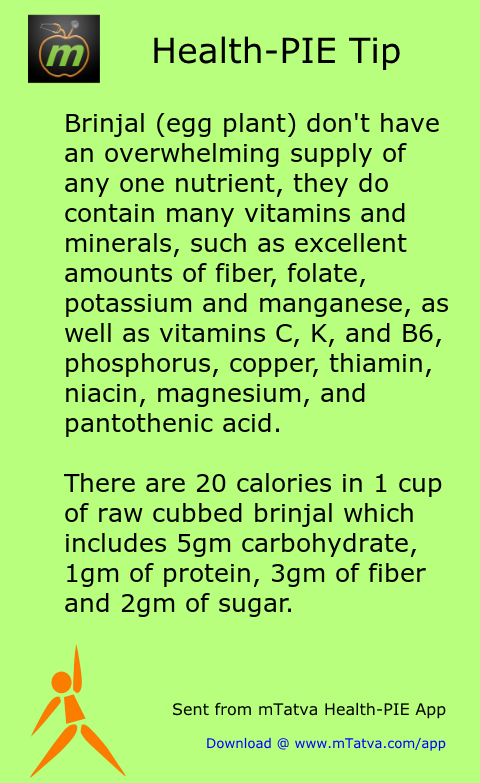
Brinjal (egg plant) don’t have an overwhelming supply of any one nutrient, they do contain many vitamins and minerals, such as excellent amounts of fiber, folate, potassium and manganese, as well as vitamins C, K, and B6, phosphorus, copper, thiamin, niacin, magnesium, and pantothenic acid. There are 20 calories in 1 cup of raw cubbed brinjal which includes 5gm carbohydrate, 1gm of protein, 3gm of fiber and 2gm of sugar.

Dietary fiber in dates helps to move waste smoothly through your colon and helps prevent LDL (bad) cholesterol absorption by binding with substances containing cancer-causing chemicals.
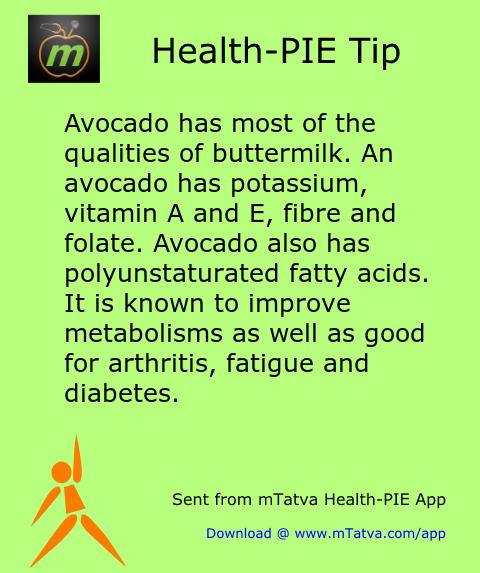
Avocado has most of the qualities of buttermilk. An avocado has potassium, vitamin A and E, fibre and folate. Avocado also has polyunstaturated fatty acids. It is known to improve metabolisms as well as good for arthritis, fatigue and diabetes.
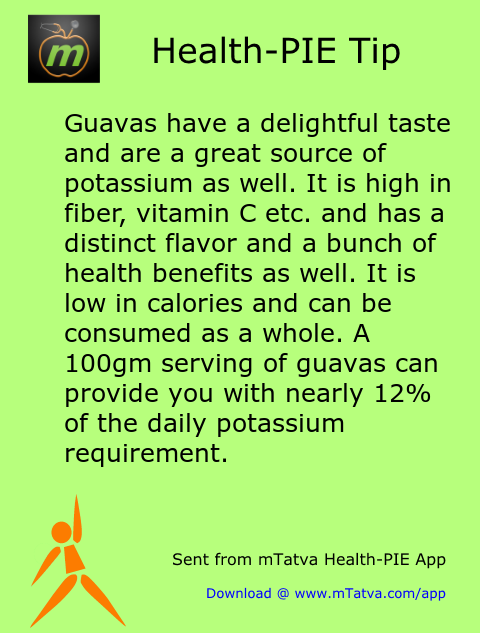
Guavas have a delightful taste and are a great source of potassium as well. It is high in fiber, vitamin C etc. and has a distinct flavor and a bunch of health benefits as well. It is low in calories and can be consumed as a whole. A 100gm serving of guavas can provide you with nearly 12% of the daily potassium requirement.